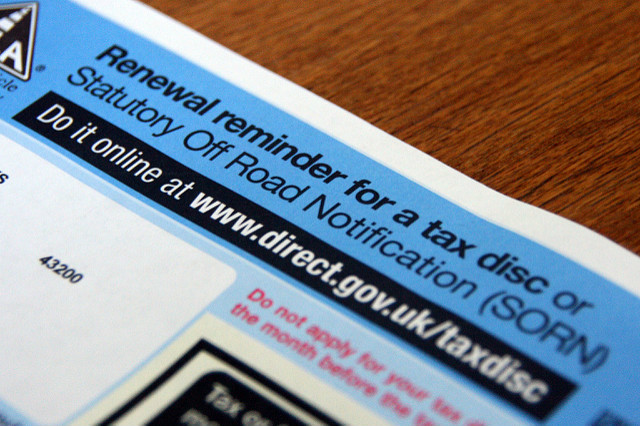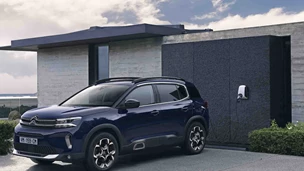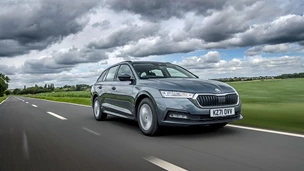Any car registered in Britain needs to be taxed in order to be used or kept on a public road. Car tax, also known as Vehicle Excise Duty (VED) or Road Tax, is therefore something vital for motorists to be aware of.
There are a few factors which determine how much you pay for Car Tax, including the vehicle’s age and emissions output. In this guide we explain how exactly Car Tax works in the UK.
What is car tax?
Car tax is something levied as an excise duty and which most car owners in Britain must pay in order have their vehicle used and parked on public roads.
Vehicle Excise Duty (VED) is the official and more accurate term for what this is, but many car owners and dealers are likely to refer to it as car tax in conversation. Other alternative terms that may be used include ‘vehicle tax’ and ‘road tax’. VED is enforced by the Driver and Vehicle Licensing Agency (DVLA).
What are car tax bands and prices
Car tax bands are what are used to determine how much for VED should be paid for a vehicle by the owner. The band a car falls in and subsequently the price the owner pays is based on either the CO2 emissions or the engine size.
Car tax for cars registered AFTER 1 March 2001
For all cars registered on or after 1 March 2001, the amount owners pay for Car Tax depends on how much CO2 their vehicle emits.
Different levels of CO2 emitted in grams per kilometre fall under different tax bands ranging from A to M. The lowest tax band is A, and this is applied to cars which emit up to or less than 100g/km in CO2.
At present, owners of a cars that falls under band A do not need to pay Car Tax in either the first year after purchase or any other time. This means that nowadays most hybrid cars and all electric cars (which emit zero CO2) are currently exempt from paid VED.
The first year and standard rates paid for Car Tax under each band in 2015/2016 is as follows:
| VED Band | CO2 output | First year rate | Standard rate |
| Band A | 0-100g/km | Free | Free |
| Band B | 101-110g/km | Free | £20 |
| Band C | 111-120g/km | Free | £30 |
| Band D | 121-130g/km | Free | £110 |
| Band E | 131-140g/km | £130 | £130 |
| Band F | 141-150g/km | £145 | £145 |
| Band G | 151-165g/km | £180 | £180 |
| Band H | 166-175g/km | £295 | £205 |
| Band I | 176-185g/km | £350 | £225 |
| Band J | 186-200g/km | £490 | £265 |
| Band K | 201-225g/km | £640 | £290 |
| Band L | 226-255g/km | £870 | £490 |
| Band M | over 255g/km | £1,100 | £505 |
For any cars registered before 1 March 2001, the cost of Car Tax is determined differently, because official CO2 data was generally not available back then. Instead, the size of the engine is the deciding factor.
Cars which have engines sized at 1549cc (rounded to 1.6-litre) or smaller require the owner to pay £145 per year for tax.
For cars which have an engine that’s bigger than 1549cc/1.6-litre, the owner is required to pay £230 per year for tax.

How can I buy or renew my road tax?
You can buy or renew your car tax online via the government’s tax your vehicle page. To renew car tax, you’ll need a reminder letter (V11 document), but if you haven’t received one there are some alternatives you can use to suit the circumstances.
Instead of going online, you can also apply for road tax on your car by contacting the telephone number 0300 123 4321 or the textphone number 0300 790 6201.
Alternatively you could go to a local post office that deals with car tax to get it sorted. If you do this, you’ll need payment for the car tax and either your tax reminder letter, a V5C registration certificate or a new keeper supplement (V5C/2) if you’ve just bought a car.
Can I check if my car is taxed?
The government has an online service which allows you to input the licence plate of a vehicle to confirm whether it has up-to-date vehicle tax or has been declared SORN (off the road).
There are other online sites and phone services from third parties you can alternatively use to confirm if a car has up-to-date road tax, and most of these also rely on the registration number.
What are the new car tax laws?
You may have heard that from 1 April 2017, the rules for Vehicle Excise Duty bands will change. Bear in mind that these rule changes will only affect cars bough from this particular date onwards. Cars bought before April 2017 will continue to be taxed under the current 2015-16 rates.
So what are the changes affecting cars registered from April 2017 onwards? One significant difference is that every car will be subject to a first year rate based on emissions, similar to the current system used, but then a flat rate of £140 will be applied thereafter.
More new cars will be subject to road tax in the future. While models that emit 100g/km or less of CO2 currently get free VED, only zero emission vehicles will be free for the first year or the standard rate under future car tax bands. Therefore, anyone thinking of buying a hybrid or frugal petrol/diesel car to get free VED would be wise to make their purchase before April 2017.
Another major change that will be enforced by the next VED bands is that owners of a new vehicle priced over £40,000 will have to pay an additional £310 every year for the first five years of ownership. This means that some electric cars, like the Tesla Model S which starts from over £55,000, will include a tax to be paid by owners even if it emits zero CO2.
The first year and standard rates paid for Car Tax under each band from April 2017 onwards is as follows:
| CO2 output | First year rate | Standard rate |
| 0g/km | Free | Free |
| 1-50g/km | £10 | £140 |
| 51-75g/km | £25 | £140 |
| 76-90g/km | £100 | £140 |
| 91-100g/km | £120 | £140 |
| 101-110g/km | £140 | £140 |
| 111-130g/km | £160 | £140 |
| 131-150g/km | £200 | £140 |
| 151-170g/km | £500 | £140 |
| 171-190g/km | £800 | £140 |
| 191-225g/km | £1,200 | £140 |
| 226/255g/km | £1,700 | £140 |
| over 255g/km | £2,000 | £140 |



